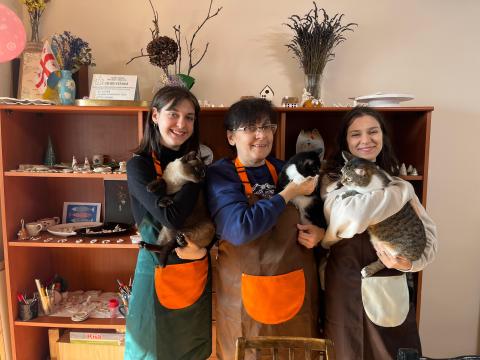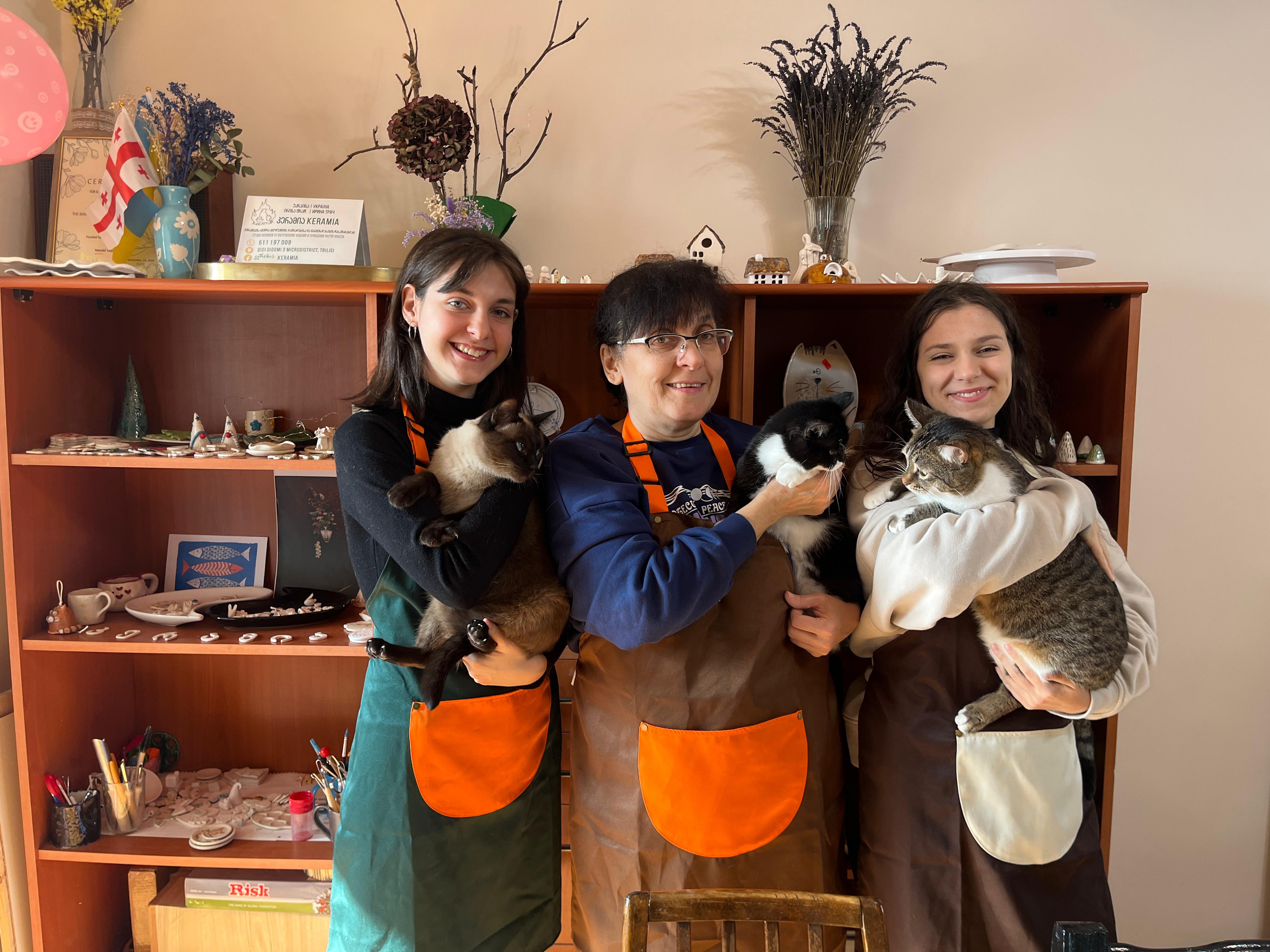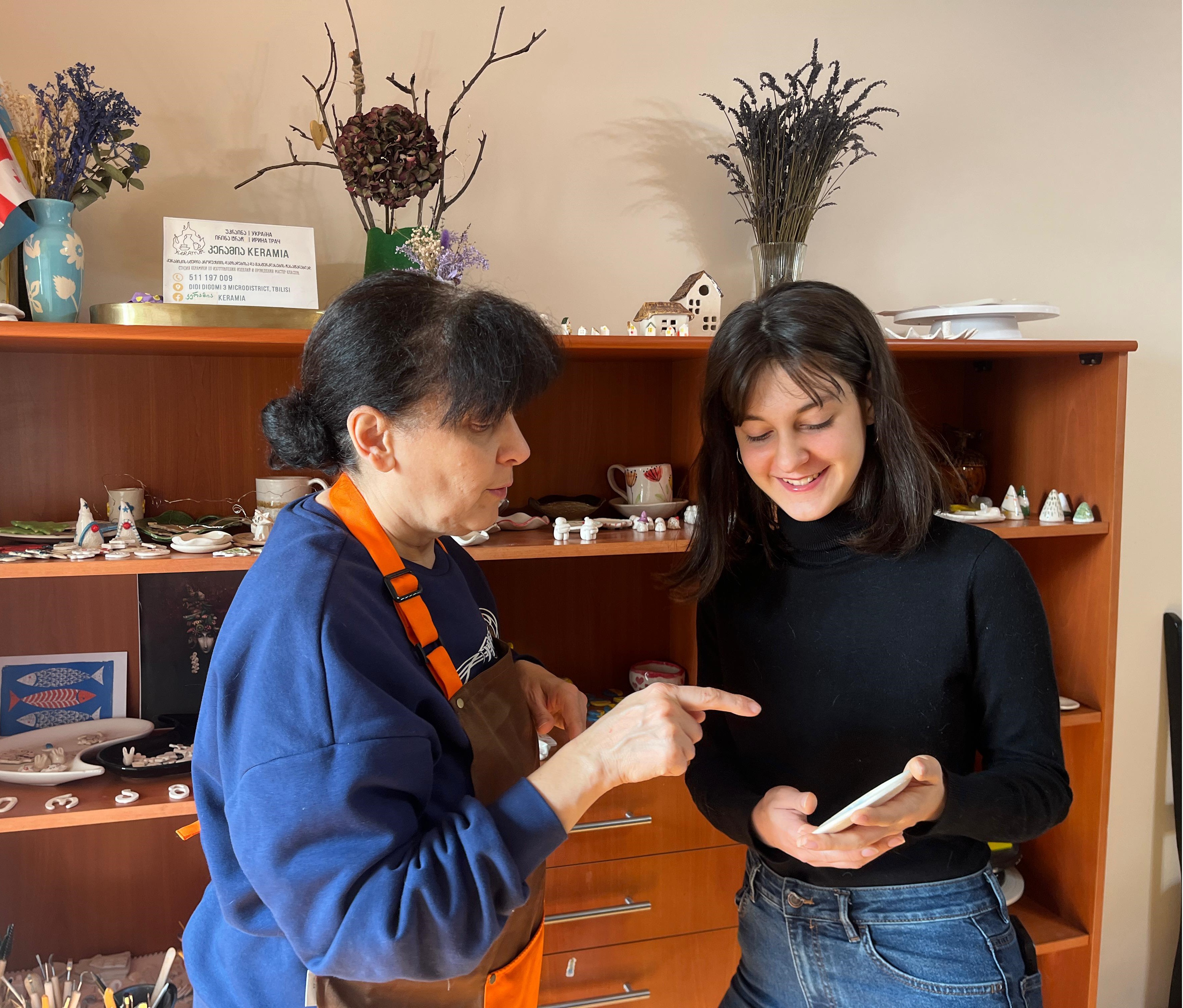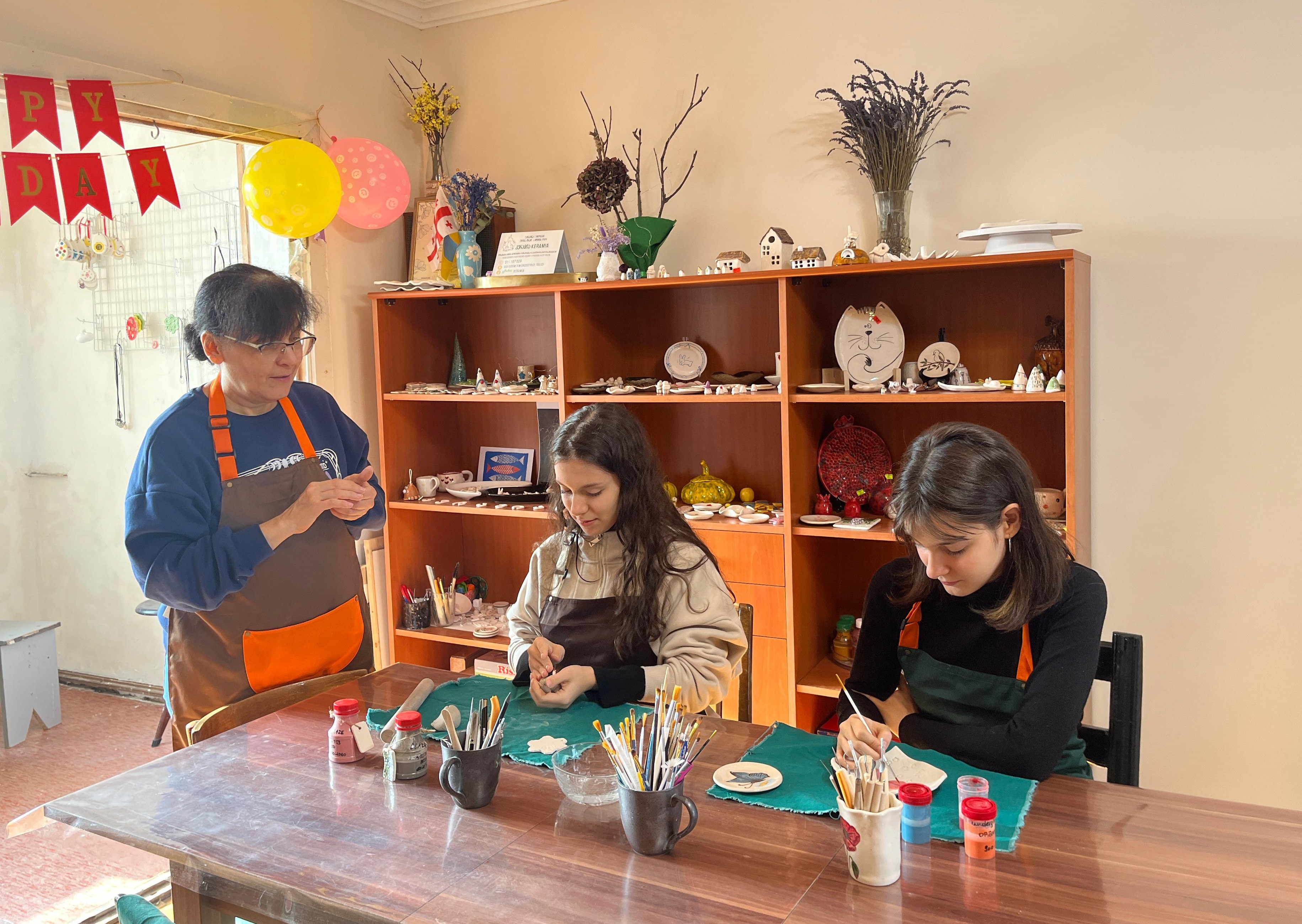World Vision helped us rebuild hope - Irina’s story

On the morning the war reached Odessa, Irina knew her life would never be the same. A mother of twin teenage daughters, she had spent over 20 peaceful years in Ukraine, raising her family and calling it home. Ethnically Georgian but deeply rooted in Ukrainian life, she never imagined she'd be forced to flee. “I didn’t want to leave,” Irina recalls. “But when the bombs started falling, and I saw the fear in my daughters’ eyes, I knew we had no choice.”
At the time, Irina was recovering from serious health issues. She walked with a crutch and needed surgery to replace a damaged hip joint. But her concern for her daughters’ safety pushed her beyond her physical limits. Her husband, unable to leave due to martial law, stayed behind. With a heavy heart and a broken body, Irina gathered her strength and fled with her daughters and her sister’s family. Their journey was long and harrowing - four days across Moldova, Romania, Bulgaria, and Türkiye, before finally reaching Georgia. “We carried only one bag. Nothing more,” Irina says. “There were so many others like us - families, children, people crying, unsure of where they were going. But we were alive. That was all that mattered.”
In Tbilisi, Irina and her daughters moved into a small apartment shared with extended family. Nine people squeezed into four rooms. It was far from comfortable, but it was safe. Still, the trauma of displacement, physical pain, and the uncertainty of starting over weighed heavily.
That’s when Irina found a lifeline - World Vision Georgia. At first, the support came in the form of cash assistance, which gave her family the ability to meet basic needs when Irina couldn’t work. But what followed was much deeper: emotional support, information, and a sense of belonging.
“I learned about World Vision through a Telegram group for Ukrainians in Georgia,” she says. “When I registered, they connected me to a social worker who explained what help was available - where to go, who to talk to, what my daughters could access. It was the first time I felt like we might be okay.”
Through World Vision’s Multi-Service Centre, which operates with support from UNHCR and World Vision Nordic, Irina’s family began rebuilding their lives. The Centre became a hub of support—offering legal advice, psychological counselling, social services, and skills training to hundreds of refugees, asylum seekers, and stateless persons in Georgia.
“I’m so grateful to World Vision,” - Irina says, " It has been a lifeline for many refugees like me, providing not just financial support, but emotional care that help people rebuild their lives."

Irina’s daughters, Sasha and Katsya, found comfort and community in World Vision’s Happy Space, a safe space offering educational and psychosocial activities for children and teenagers. They took part in English classes, water marbling, art therapy, film screenings, and cultural events- programmes designed to help young people heal and grow.
“This space has been a blessing for my girls. It was especially important for my daughter Katsya,” Irina says. “She struggled deeply with anxiety and homesickness. She would cry at night, asking when we could go back. It broke my heart.”
Recognising her daughter’s emotional pain, Irina arranged for her individual therapy through World Vision. The sessions helped Katsya begin to process her trauma and rebuild her confidence.

“She started smiling again,” Irina says. “That’s when I knew we were on the right path.”
But Irina’s journey was about more than just surviving; it was about rebuilding. As she recovered physically, she began exploring ways to generate an income for her family. She learned that a Ukrainian entrepreneur also a refugee like her was offering pottery courses in Tbilisi, and she decided to try something new. What started as a therapeutic escape turned into a passion—and then, a business idea. “I fell in love with it,” she says. “Shaping the clay, painting, creating something with my hands—it gave me purpose.” Her daughters, both artistic by nature, joined her. Together, they transformed a small room in their apartment into a tiny pottery workshop studio. They created simple ornaments and souvenirs—each piece carrying a piece of their story.

With support of local organisations Irina received a small grant and learned how to market their work online. “I didn’t know anything about social media before,” she laughs. “But World Vision’s training helped me start an Instagram page, and that’s how people started finding us.” They now sell their handmade ceramics and host pottery masterclasses for fellow Ukrainians and local Georgians. Their dream is to expand—to find a larger studio space where they can grow the business and provide jobs for others. For Irina, this isn’t just a business. It’s a symbol of survival, of healing, of reclaiming a future.
“We’re not just refugees,” she says. “We’re artists. We’re entrepreneurs. We’re a family, building something new—together.”
World Vision’s ongoing support has been vital not only for Irina, but for many other refugees living in Georgia. Through consistent financial assistance, skills development, educational programsme, and access to vital services, we help displaced families rebuild their lives with dignity and hope. These efforts are carried out in close collaboration with both local and international partners ensuring comprehensive and effective assistance to those in need.
Teona Navdarashvili, Communication and Fundraising Manager at World Vision Georgia
